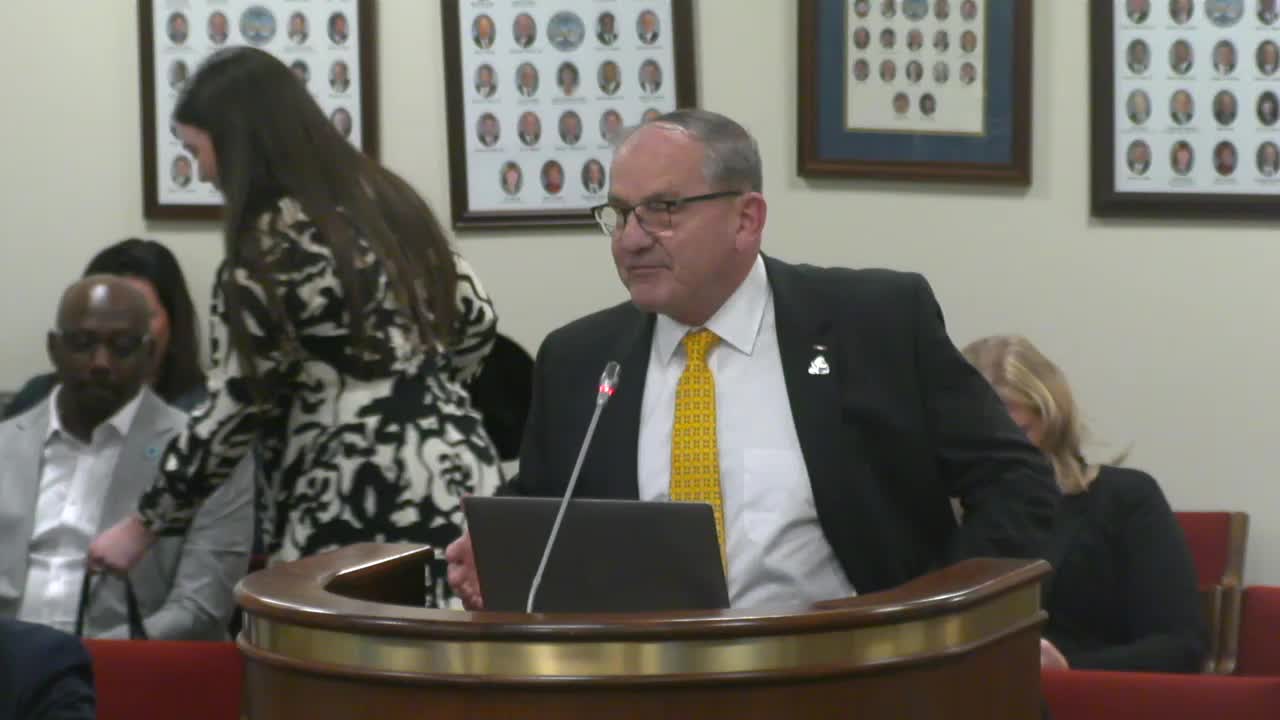DMV director warns of aging systems, workforce strain and Real ID deadline; asks for $100 million modernization
Get AI-powered insights, summaries, and transcripts
Subscribe
Summary
South Carolina Department of Motor Vehicles director Kevin Shwedo told the House Education and Public Works Committee that the agency operates on an aging mainframe, faces high turnover and needs a $100 million modernization to prevent service disruptions while urging residents to obtain Real IDs ahead of federal compliance deadlines.
Kevin Shwedo, executive director of the South Carolina Department of Motor Vehicles, told the House Education and Public Works Committee that the DMV is operating on legacy software and faces workforce and capacity challenges that make a technology modernization an urgent legislative priority.
"We are the department of identity. Everything starts with identifying people," Shwedo said, describing the DMV's role in driver licensing, titling, registration and identity verification. He said South Carolina’s population has grown from about 4 million to 5.3 million while the DMV’s staff and base resources have not kept pace.
Shwedo said the DMV currently relies on a legacy system called Phoenix, written in COBOL and in use before the turn of the century, and that replacement would cost roughly $100 million. He warned that when the system fails, "everything shuts down," affecting licensing transactions, law enforcement visibility and identity-fraud checks.
The director highlighted workforce pressures: the DMV has roughly 1,500 employees, about 87% female and more than half African American by his account, with annual turnover near 33% (about 500 staff). He said front-line salaries rose from roughly $22,000 to $33,000 several years ago but that inflation has eroded buying power and that the agency will lose staff to higher-paying private-sector employers unless pay and modernization are addressed.
Shwedo also discussed federal Real ID requirements and urged residents to obtain Real ID credentials early. He said roughly 60% of the state currently holds Real ID credentials; he warned that the federal deadline will restrict access to certain federal facilities and commercial air travel for those without compliant identification.
On enforcement and safety, Shwedo provided a state-level context for highway safety policy and recidivism in driving under the influence. He estimated annual first-time DUI arrests at about 25,000 and said current law produces a sizeable industry around repeated offenses.
Shwedo described several planned operational changes tied to modernization and fraud prevention: centralized card issuance beginning in September (rather than issuing secure cards at all 66 DMV offices), plans for mobile digital credentials in the future, and a week-to-ten-day mailing turnaround for replaced cards under centralized issuance. He urged legislators to support a modernization appropriation and to consider statutory changes that would allow more secure, biometric-enabled credentialing in future phases.
Why it matters: Shwedo stressed that an aging core system, combined with high turnover and growing transaction demand, creates both service-availability and identity-fraud risks for state residents and for law enforcement that relies on live DMV data.
Ending
The director asked committee members to direct constituent DMV issues to his office card and to support modernization funding; committee members said they will continue to press for funding and to share constituents’ concerns about wait times and services.
